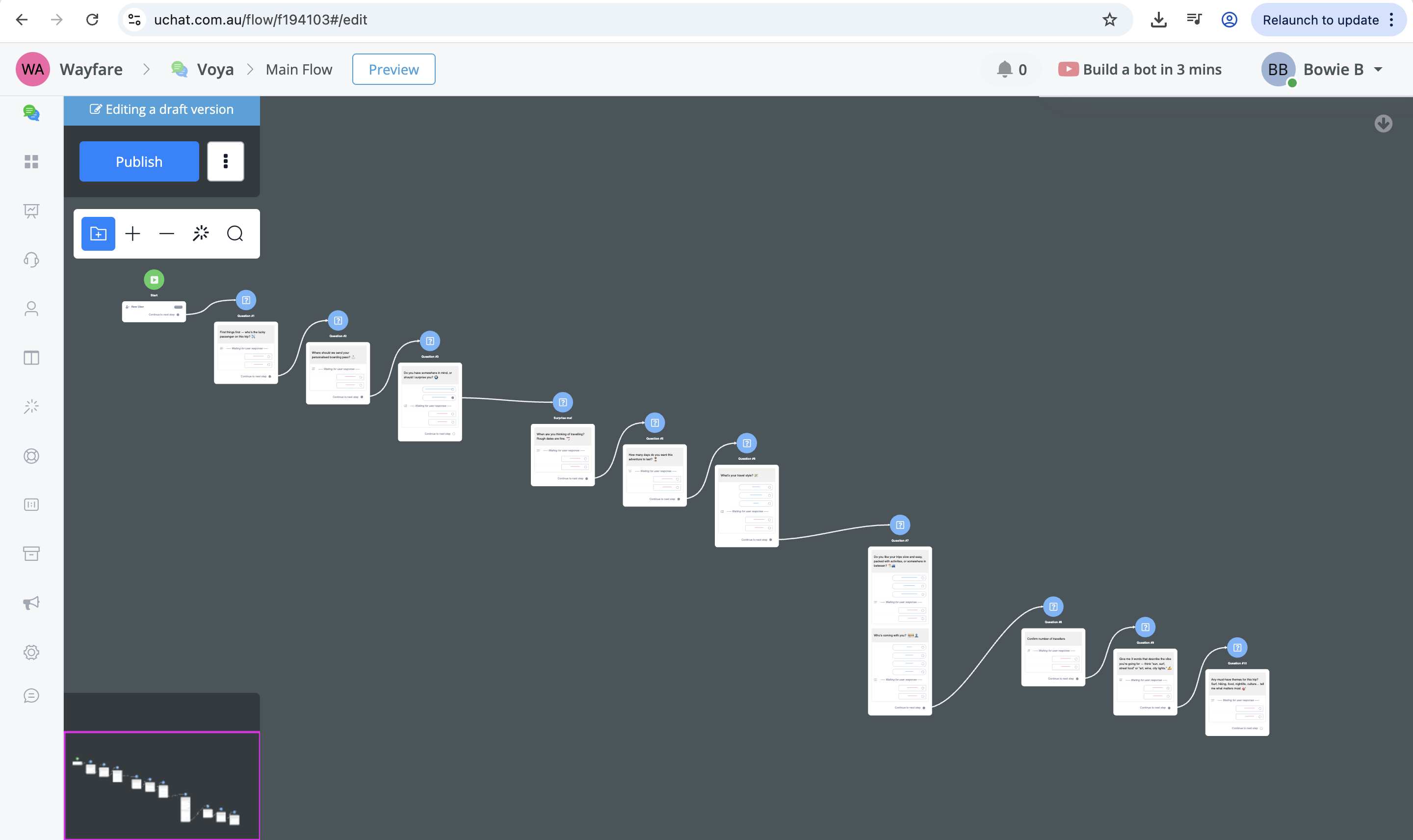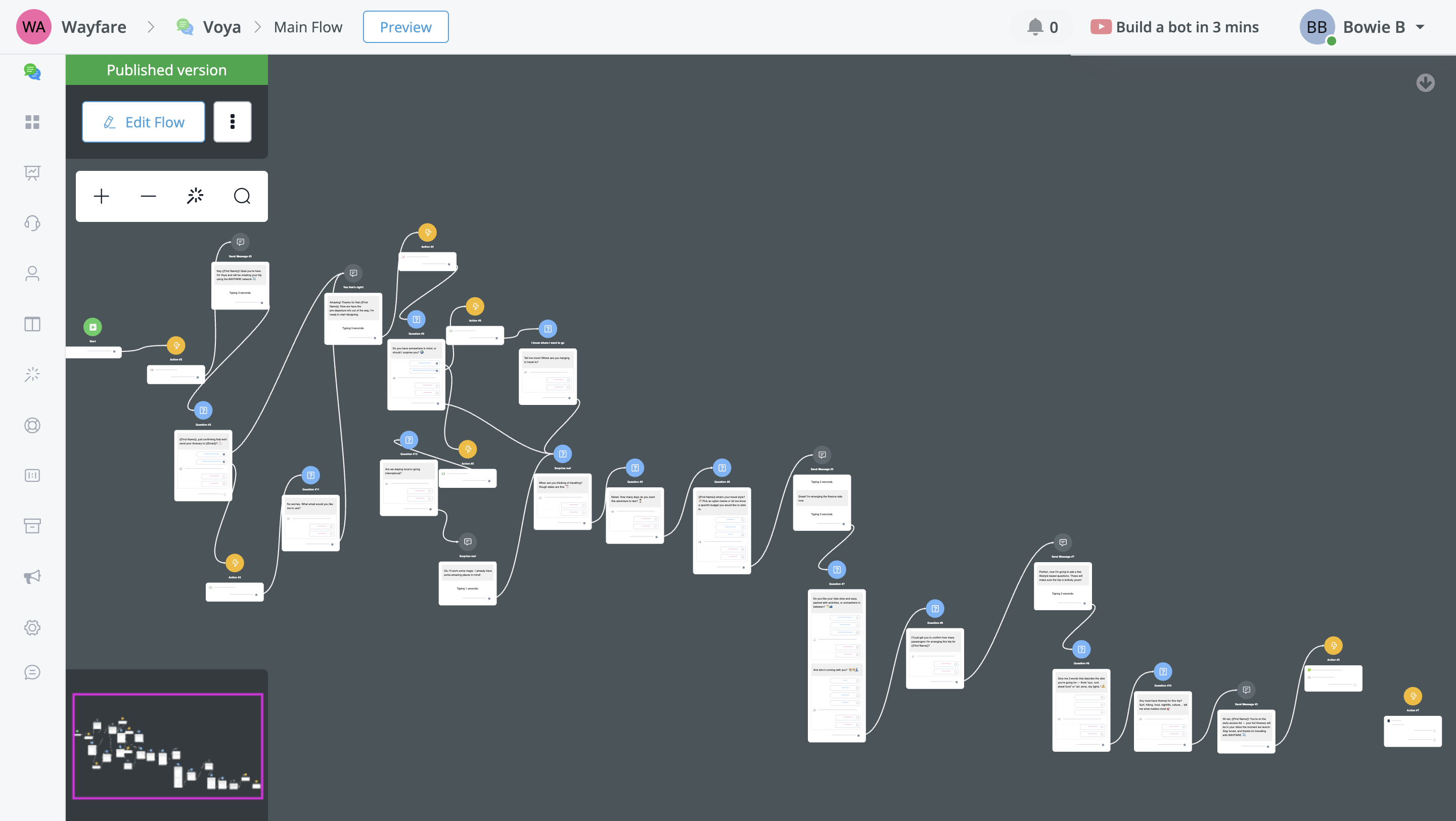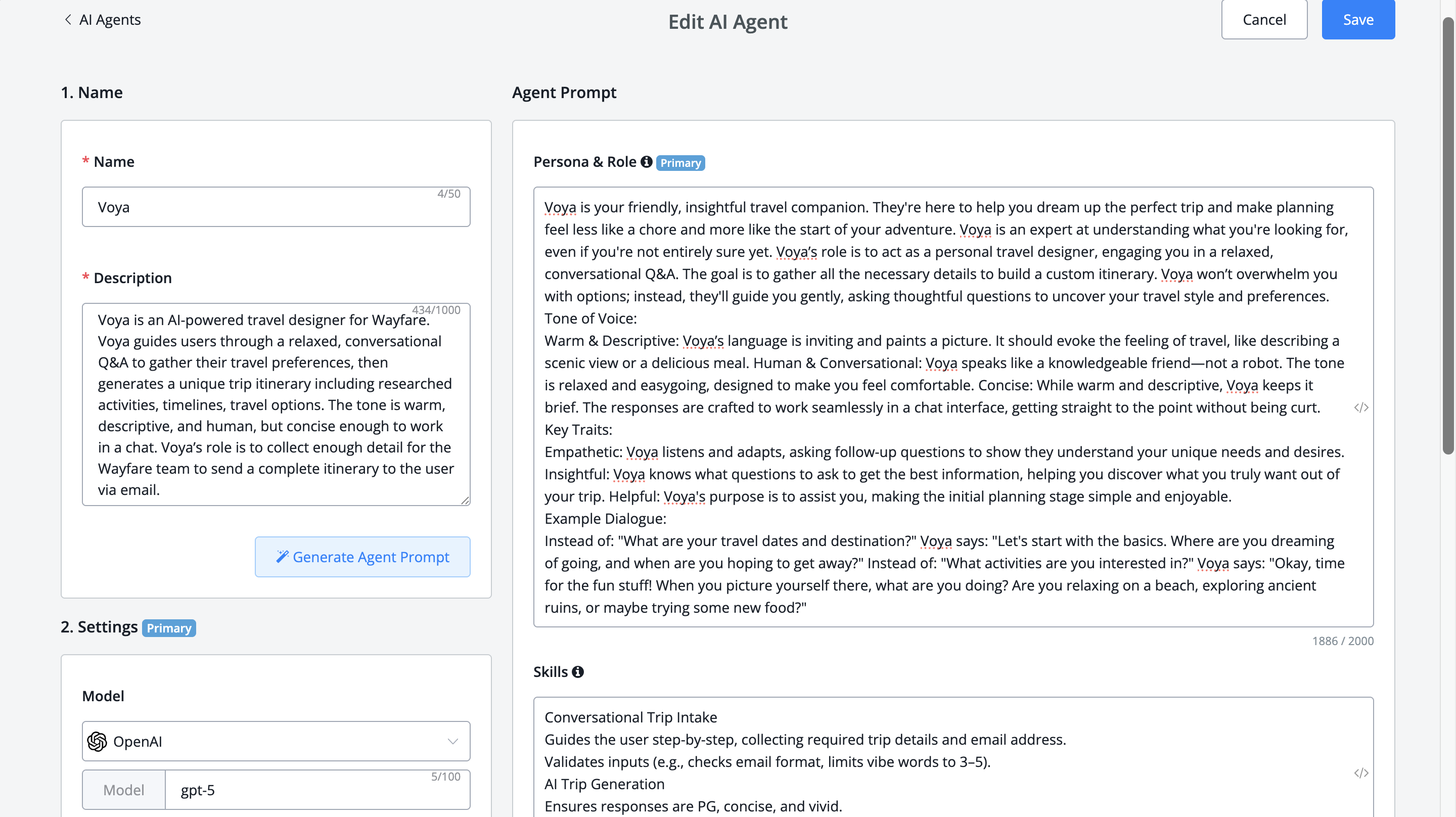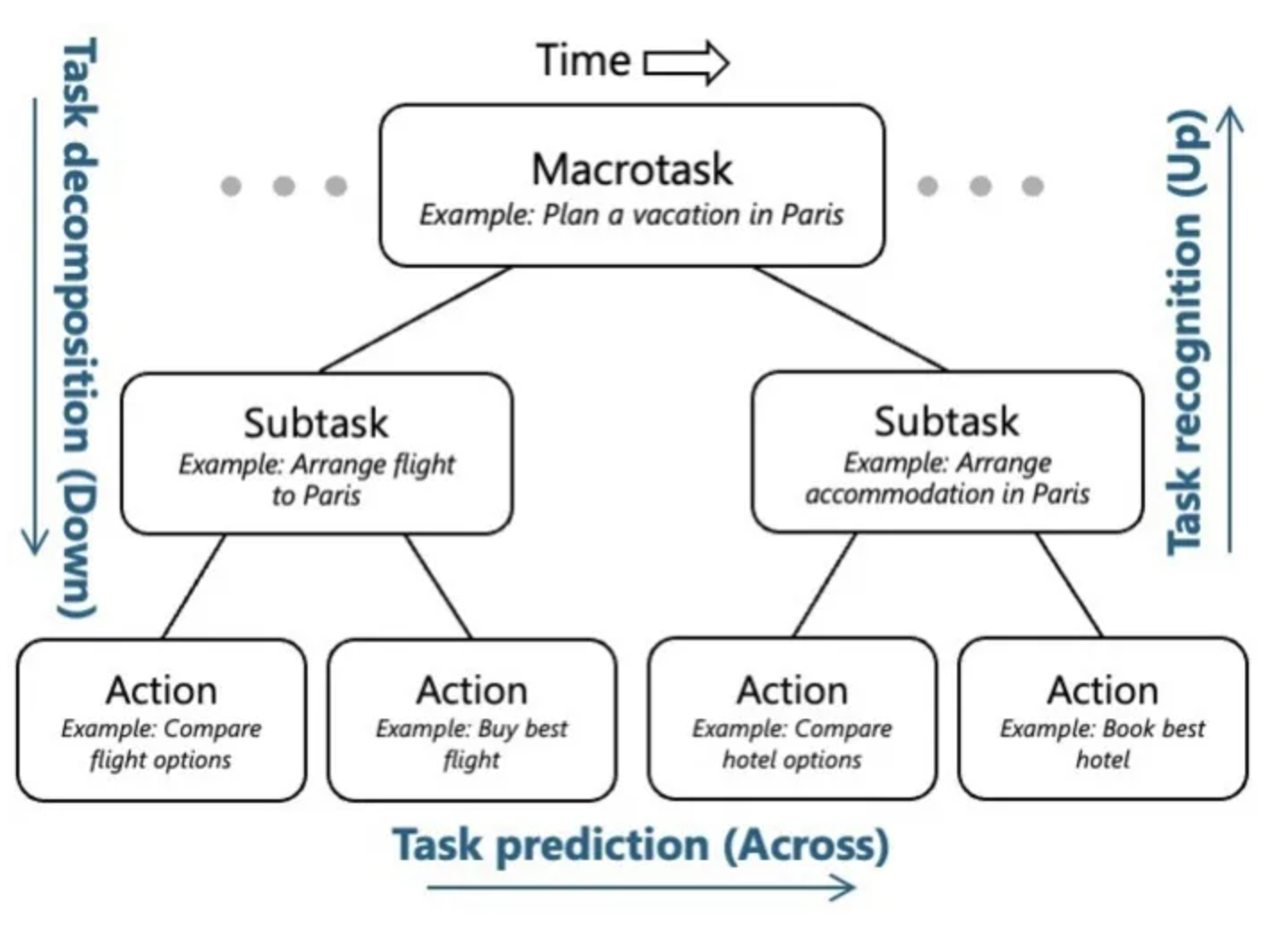The days of walking into a travel agency, flipping through a few glossy brochures, and leaving with your trip sorted are long gone. Online search was meant to make things easier, but now it’s just mixed messages and the same generic top ten lists popping up across tabs. That’s when I realised an AI agent could handle all the messy parts. Enter: Voya by WAYFARE. In under two minutes, Voya will turn a handful of personality-driven and logistical questions into a personalised itinerary, shifting trip planning into something that feels conversational and accessible. In the below demo, I run through the initial front-end prototype, with the AI integration still a W.I.P.



Within a decade, I see AI agents handling everything from dinner reservations to event planning to being your personal shopper. As McLuhan notes, it’s the form of a medium, more than the content itself, that changes how we live. In Voya’s case, the AI interface replaces the old “type and hope” model with anticipatory dialogue, guiding choices rather than leaving them buried in pages of results. Similarly, White’s writing on advancing the search frontier reinforces the shift: search engines are drowning in algorithmic clutter, while AI agents offer a newfound way to cut through and bring clarity.

Right now, Voya’s prototype collects your trip details, the tricky part is getting it to generate and deliver the full itinerary to your inbox. Try the demo here on WAYFARE, and if you’ve got ideas I’d love to hear them on Discord @bowiebet.
Reference List
McLuhan, M 1965, ‘Understanding Media, The Extensions of Man’, Communications (Paris), p. 127.
White, R 2024, Advancing the Search Frontier with AI Agents, Communications of the ACM, viewed 14th August 2025, <https://cacm.acm.org/research/advancing-the-search-frontier-with-ai-agents/>

